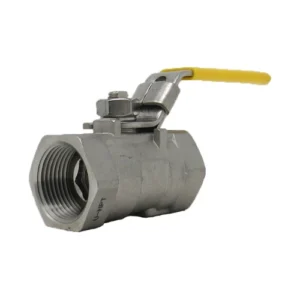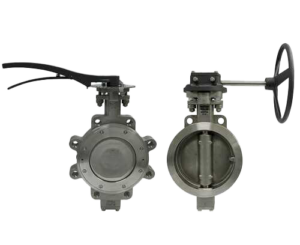Composite Ball & Butterfly Valves


AVT is the only non-metallic valve manufacturer in the world to hold American Bureau of Shipping type approval, TüV approval, Lloyds Register Type Approval, CE Module H certification, ISO9001, API 607 Firesafe, and now USCG 46CFR56.20-15. All AVT’s products are compliant to US Coastguard requirements.
Advanced Valve Technologies specializes in the production of a range of both off-the-shelf and custom-built Valves specifically designed to meet the demands of harsh or extreme environments. Construction is of reinforced composites which give remarkable resistance to corrosion, abrasion and impact, significant weight saving, excellent tensile strength throughout a wide range of operating temperatures and very low thermal conductivity. Valves can be operated manually or remotely.
Advanced Valve Technologies Valves incorporate all the features which users have come to expect from high performance valves combined with the significant advantages available from reinforced composite resin systems tailored to provide optimum characteristics for specific applications. The range used includes Glass Reinforced Epoxy, Vinyl Ester and Novolac Epoxy systems formulated to achieve extended service lives in demanding applications without a requirement for routine maintenance. Continuous research and development ensure that the range maintains its technical leadership at all times.
Internal Benefits
Remarkable internal corrosion resistance of all Advanced Valve Technologies resin systems eliminates the need for internal protective linings. The key to corrosion resistant performance lies with the careful specification of body, ball, and trim materials.
- Excellent alternative to thermoplastic valves that offer limited pressure-temperature performance resulting in possible short life cycles.
- Cost effective alternative to stainless steel valves that may suffer from corrosion or process build up/blocking.
- Preferred alternative to high-cost exotic metal valves or PTFE lined products.
Lightweight materials provide significant advantages leading to substantial reduction of costs for installation, delivery to site and subsequent maintenance.
- Cost saving alternative to metal valves in installations where frequent maintenance work and replacement is necessary through easier handling.
- Cost saving alternative where weight saving is important - Offshore platforms, marine applications, remote land sites.
- Ideal valve for installation into plastic and GRP piping systems or into plastic tanks as they eliminate the need for structural support, thereby reducing pipeline stress issues.
- Typical weight savings - 40%
Good abrasion and cavitation resistance Reinforced composite systems resist damage caused by abrasion, erosion, and cavitation
External Benefits
Remarkable external corrosion resistance of all Advanced Valve Technologies resin systems eliminates the need for external protection.
- Superior for process areas which suffer environmental attack in a chemical-laden atmospheres - Chemical plants including effluent pits.
- Ideal for exposed areas subjected to seawater and saltwater spray - Coastal and estuary, marine and offshore applications.
- Selected for buried pipeline service with soil contamination problems - fire water ring mains, effluent disposal, cooling pond connections, product distribution.
Very low thermal conductivity of Advanced Valve Technologies resin systems eliminates the need for external lagging or trace heating even when such treatment of associated pipes is necessary.
- The high level of insulation reduces process heat loss - saving installation costs of lagging or trace heating plus process energy costs.
- Elimination of valve jackets in most applications otherwise requiring these offers additional installation cost savings.
- Reduces or eliminates occurrence of process freezing due to heat loss - reducing resultant process flow problems.
Very low galvanic conductivity avoids any risk of galvanic reaction with metal pipes or fittings.
- Reduces cost of sacrificial anodes.
Extended operating temperature range at full rated pressure Resin systems offered permit operation at full rated pressure subject to media through temperature range -40°C to +140°C.
